Table of Contents
Human nature is a subject of intense debate, however, few disagree that such a thing exists. Understanding human nature helps us to understand human history, ourselves, and others we interact with far better.
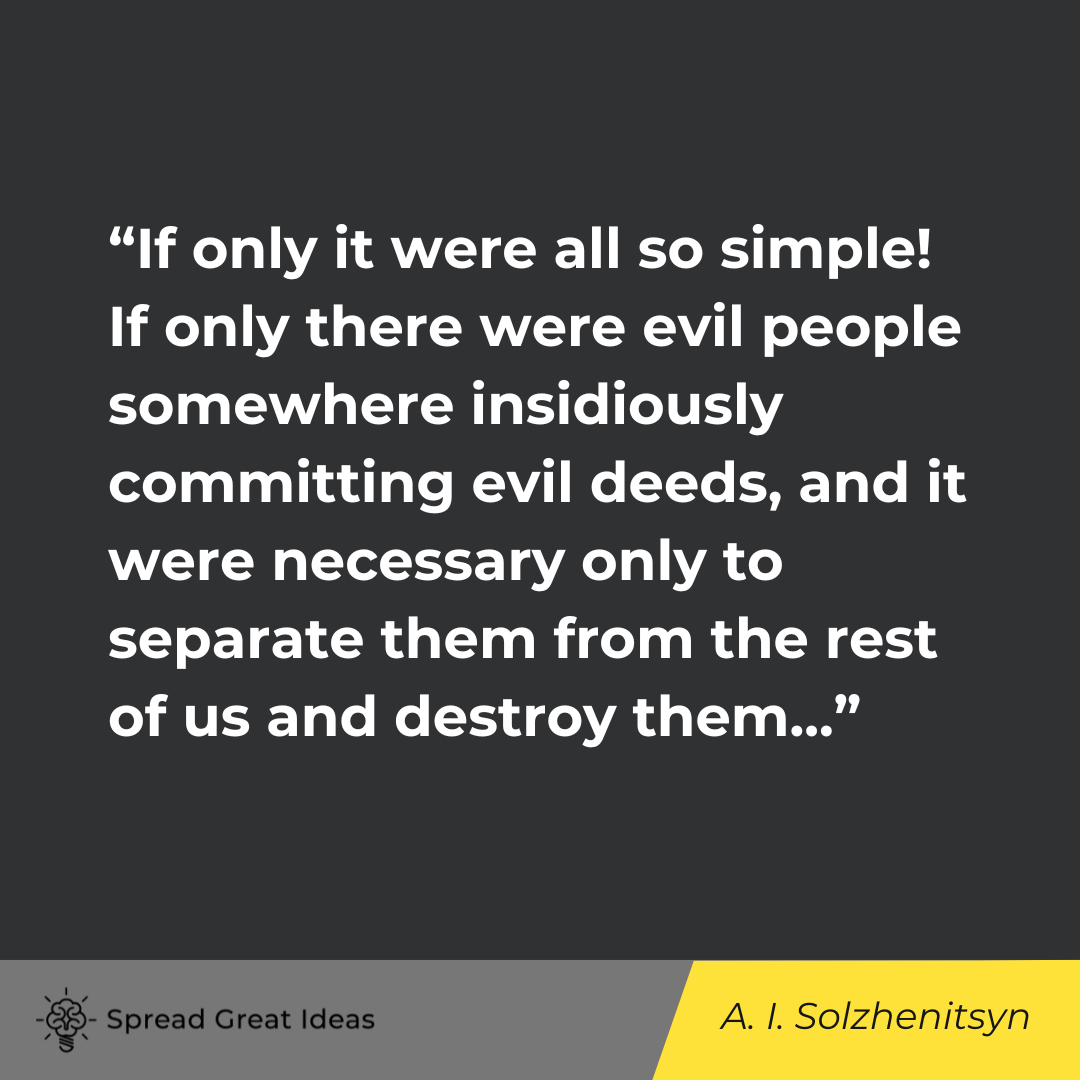
Are human beings good or not? And does this question even make sense? These are the main questions ultimately explored when one tackles the sticky and difficult topic of human nature.
Indeed, human nature is a tricky thing. We are, after all, the only species who can reflect on our own nature, thus providing both the capacity to transcend it in the individual sense and change it in the collective sense. Viewing human nature as something in constant flux provides another layer to human nature—part of our nature is the ability to change that nature.
Perhaps the competing viewpoints of human nature are each true in their own way, providing an overlapping picture of the lot the human race is consigned to. That is why we have dug up so many quotes about human nature that seem to contradict one another: Because we believe that each provides a shard of the truth about the broader picture of human nature.
Read these quotes and attempt to see the overlapping wisdom contained in each. It will provide you with a multi-faceted insight into what human nature truly is.
Good vs. Evil in Human Nature
“If only it were all so simple! If only there were evil people somewhere insidiously committing evil deeds, and it were necessary only to separate them from the rest of us and destroy them. But the line dividing good and evil cuts through the heart of every human being. And who is willing to destroy a piece of his own heart?”
– Aleksandr I. Solzhenitsyn, The Gulag Archipelago (1918-1956)
“Man is the only creature who refuses to be what he is.”
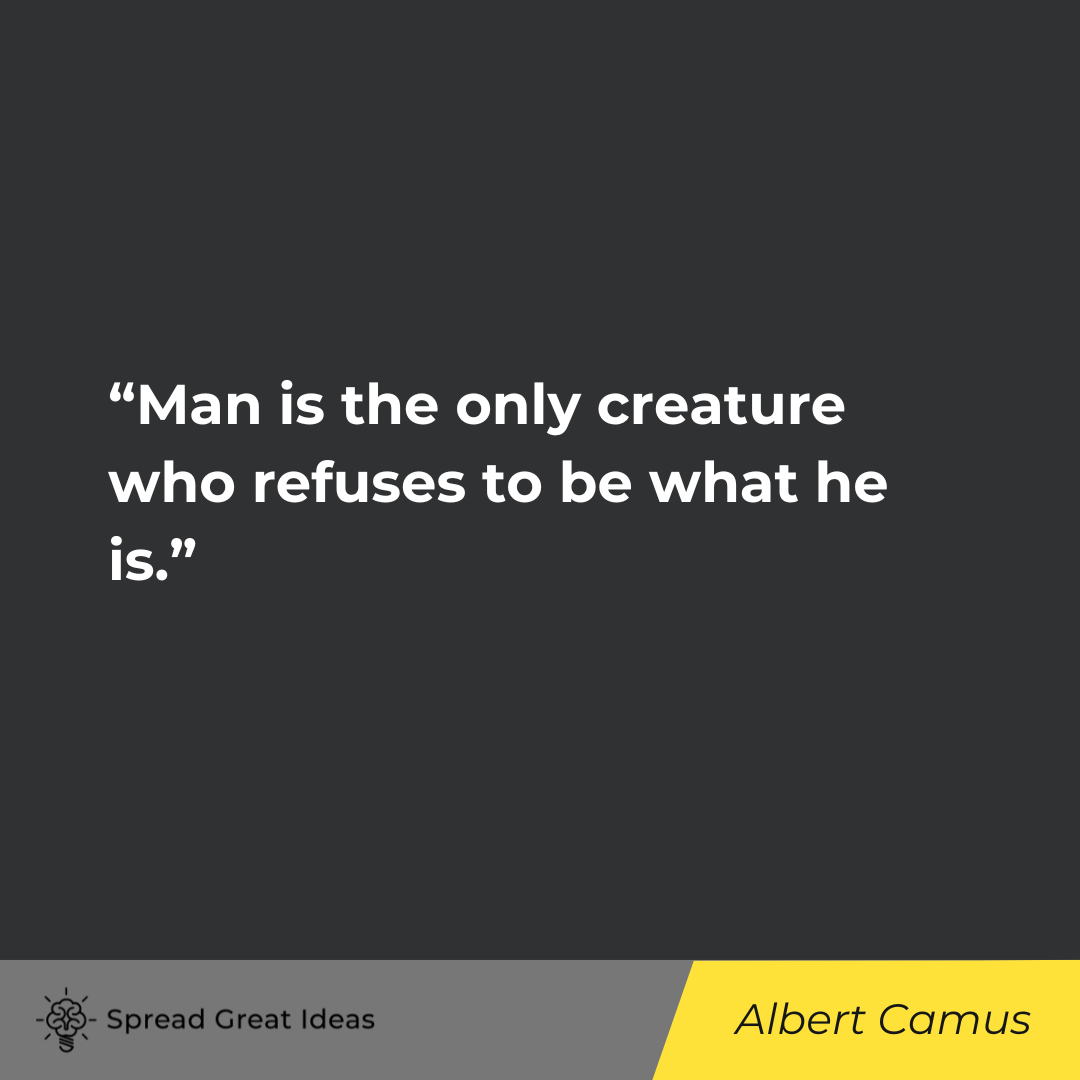
“On the whole human beings want to be good, but not too good, and not quite all the time.”
– George Orwell, All Art Is Propaganda: Critical Essays
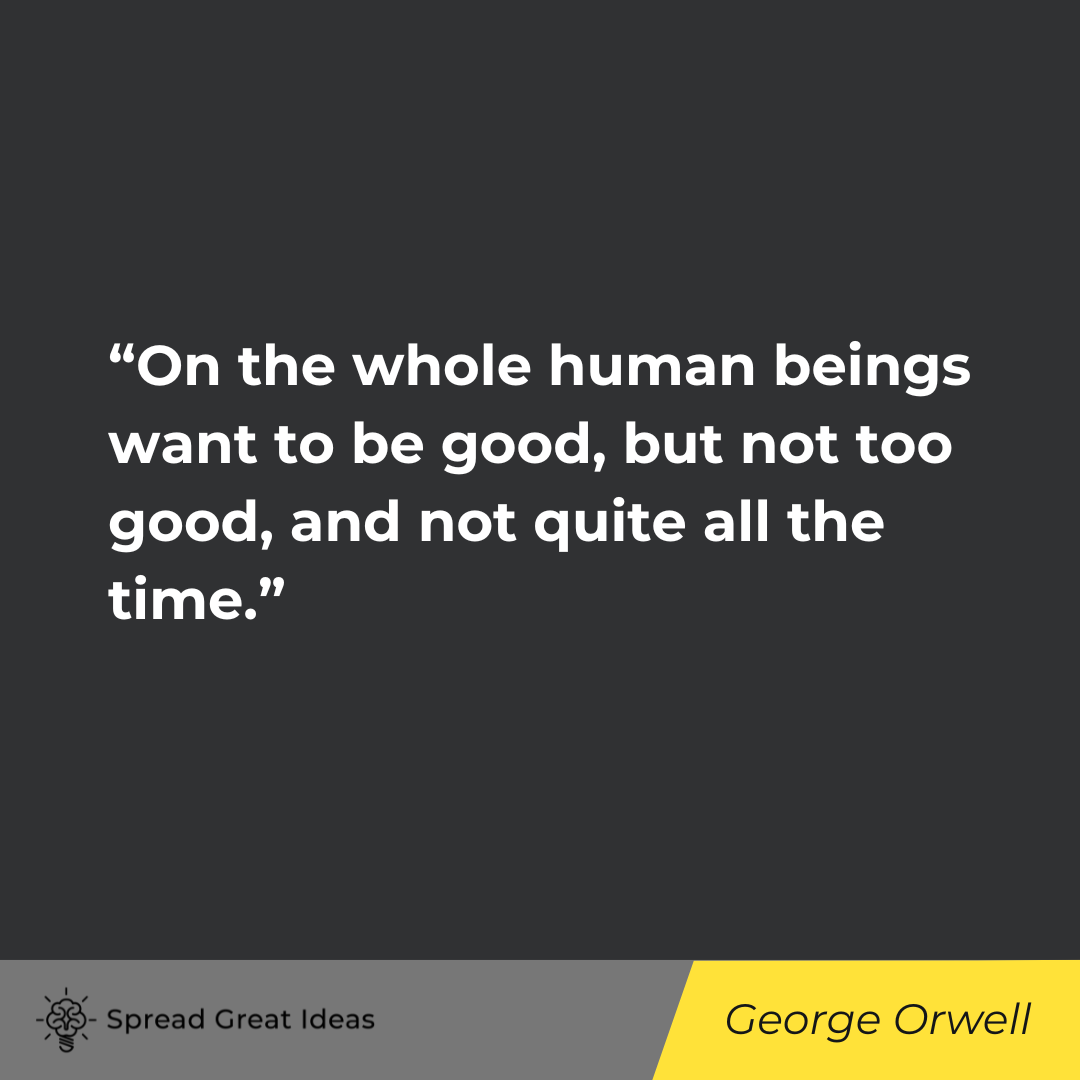
“The only thing necessary for the triumph of evil is for good men to do nothing.”
“We all are men, in our own natures frail, and capable of our flesh; few are angels.”
– William Shakespeare, Henry VIII
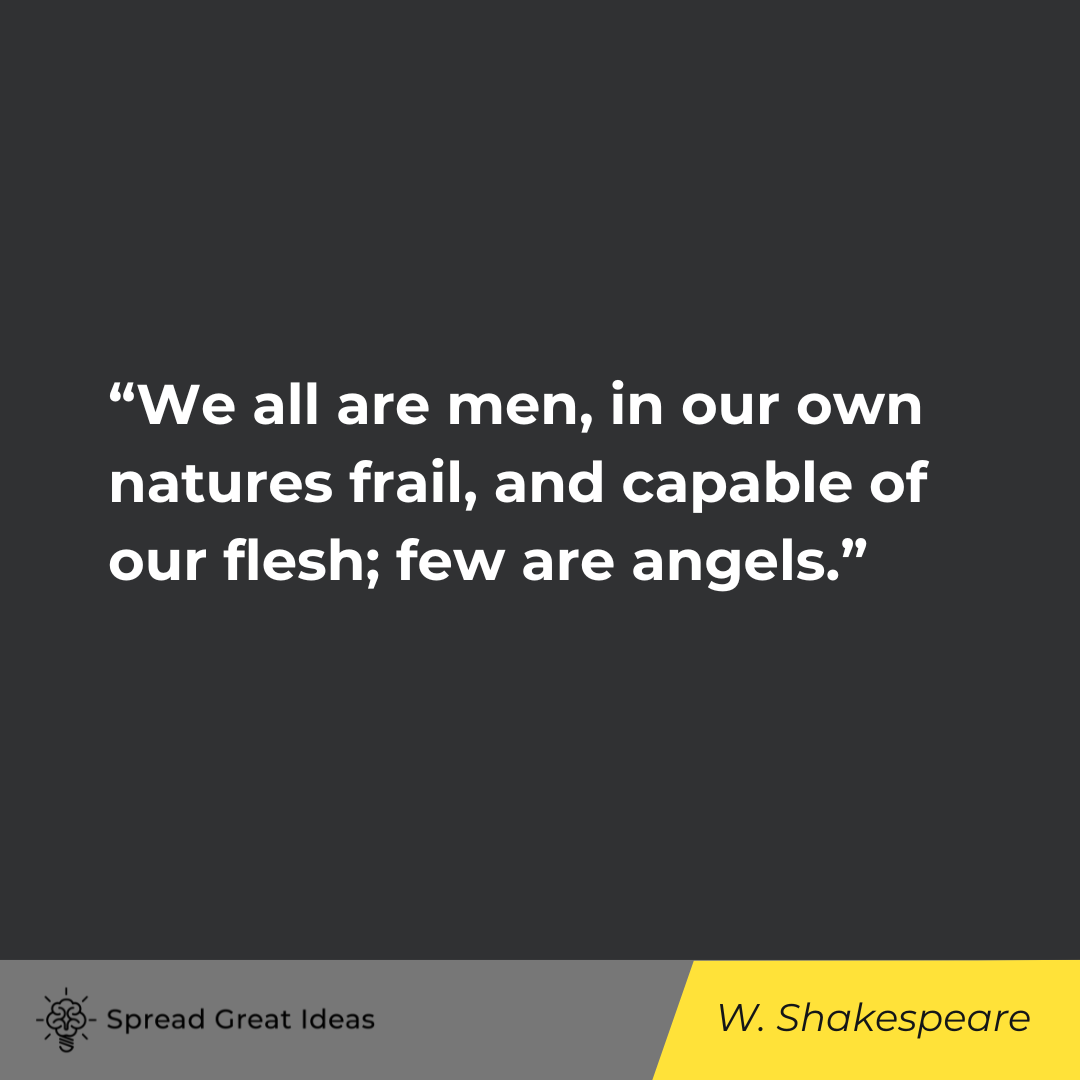
“Much that passes as idealism is disguised hatred or disguised love of power.”
“The sad truth is that most evil is done by people who never make up their minds to be good or evil.”
Flaws and Responsibilities of Humanity
“Most people do not really want freedom, because freedom involves responsibility, and most people are frightened of responsibility.”
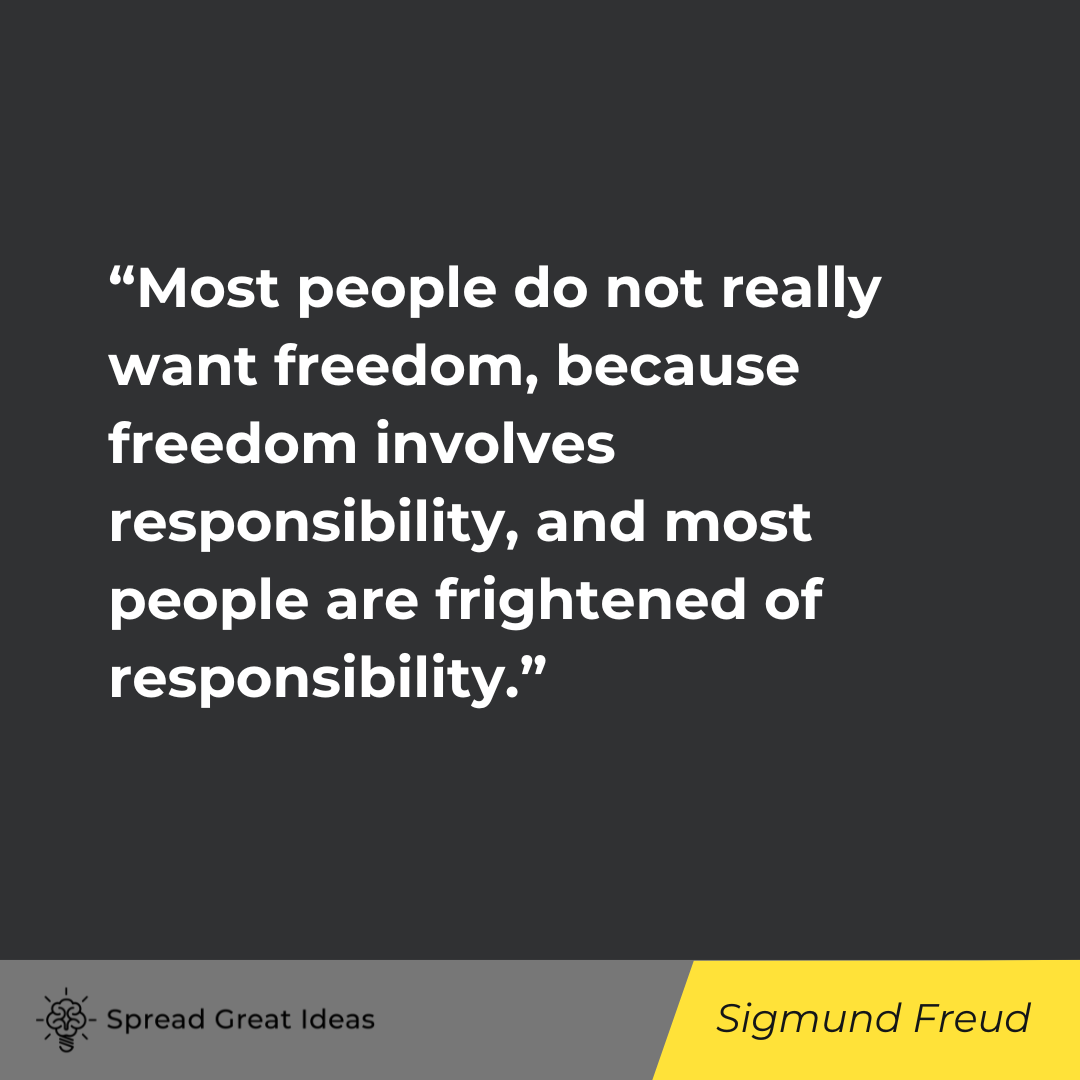
“We are all apprentices in a craft where no one ever becomes a master.”
“Two things are infinite: the universe and human stupidity; and I’m not sure about the universe.”
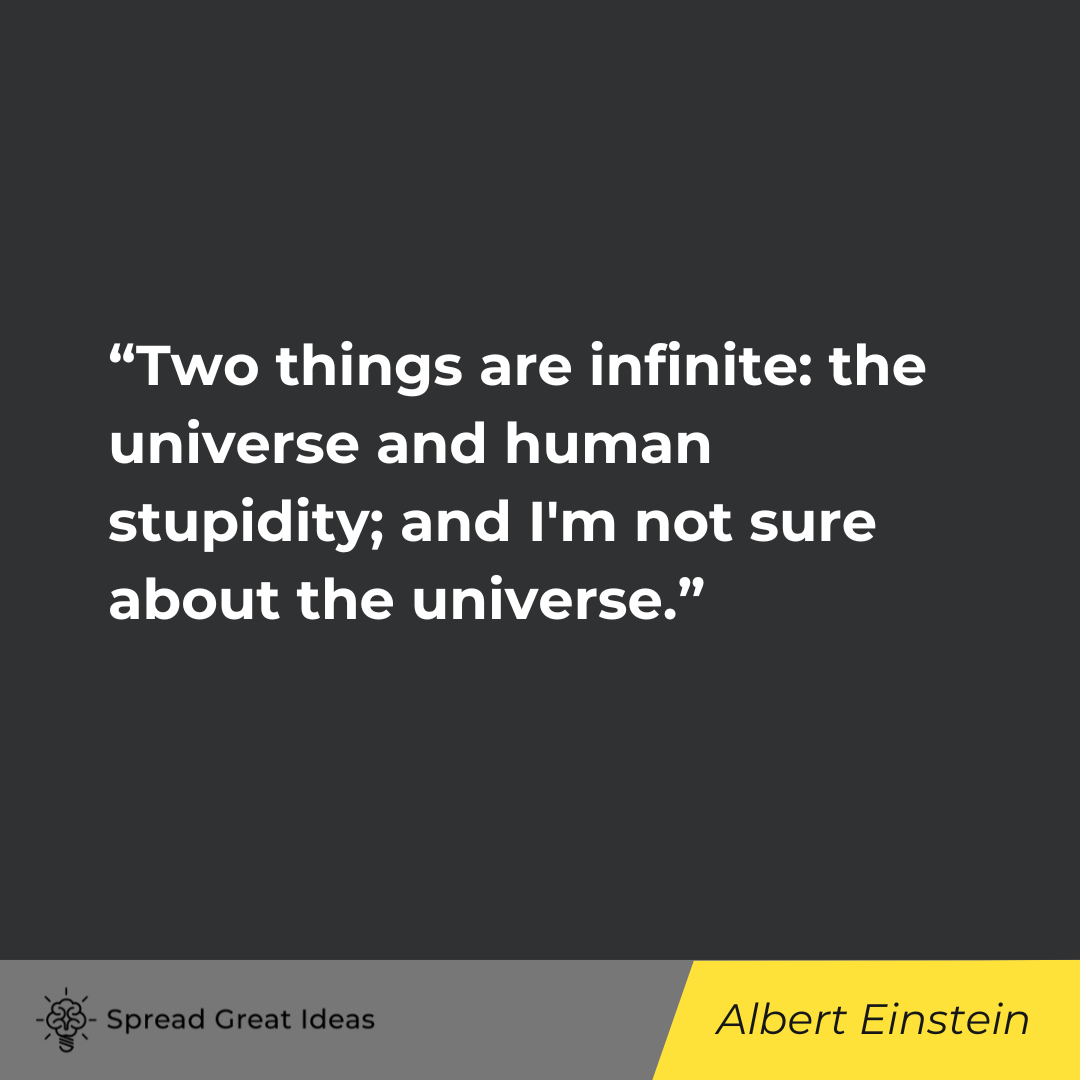
“Another flaw in the human character is that everybody wants to build and nobody wants to do maintenance.”
“There is no saint without a past, no sinner without a future.”
“Men are reasoning rather than reasonable animals.”
“The greatest burden a child must bear is the unlived life of its parents.”
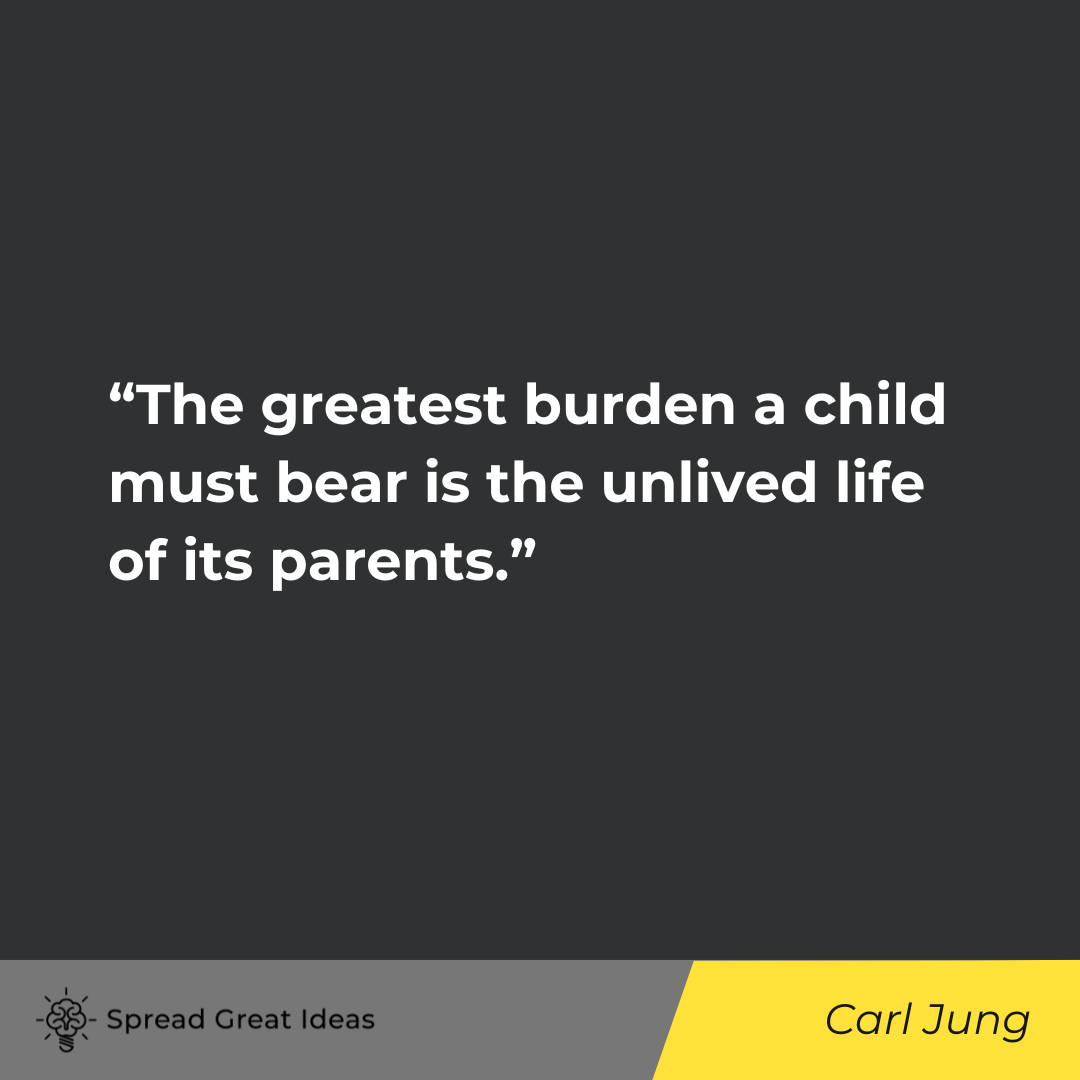
“The fault, dear Brutus, is not in our stars, but in ourselves, that we are underlings.”
– William Shakespeare, Julius Caesar
“We mute the realization of malevolence – which is too threatening to bear – by turning offenders into victims themselves and by describing their behavior as the result of forces beyond their control.”
Happiness, Perspective, and Relationships
“We are what we repeatedly do. Excellence, then, is not an act, but a habit.”
“I have no faith in human perfectibility. I think that human exertion will have no appreciable effect upon humanity. Man is now only more active – not more happy – nor more wise, than he was 6000 years ago.”
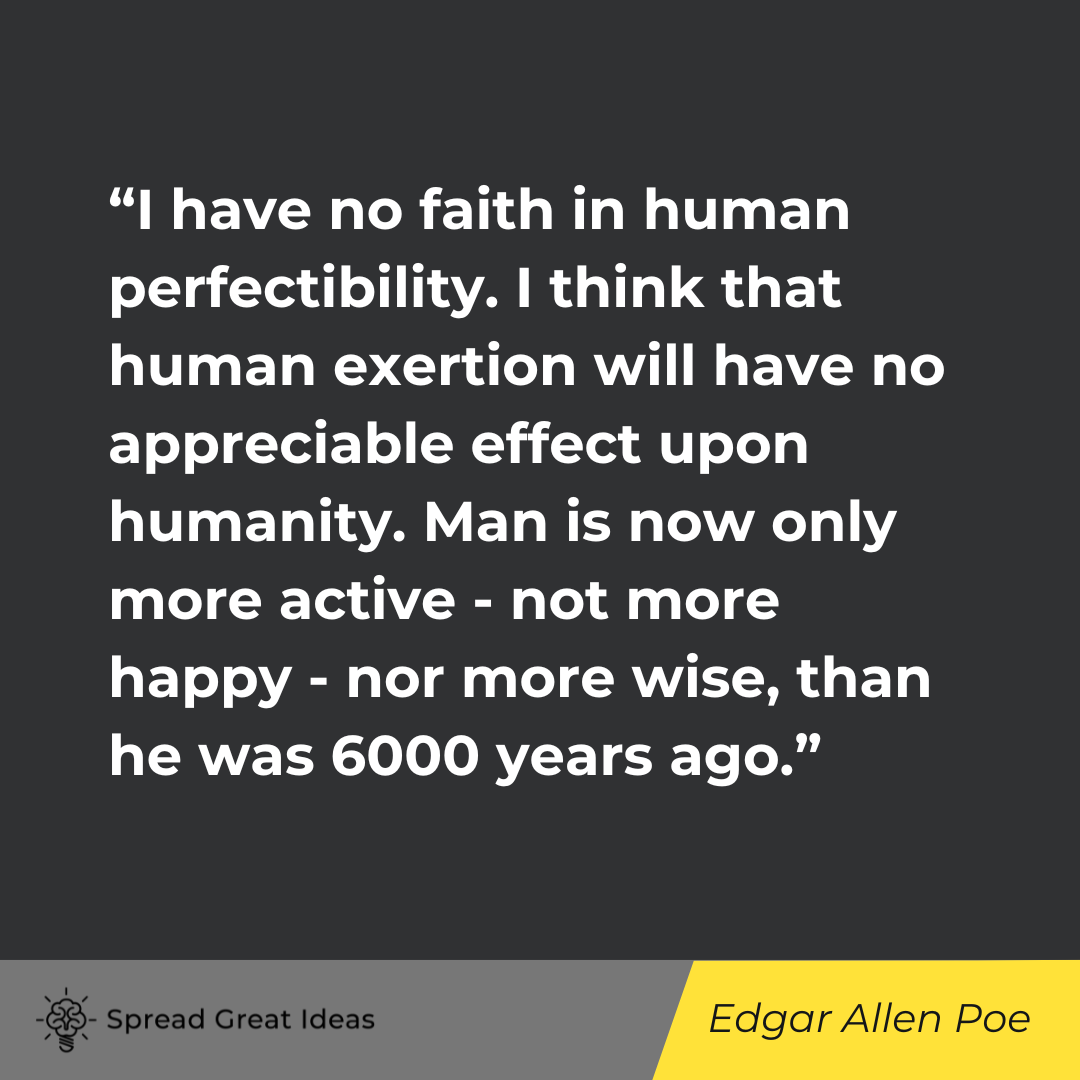
“The real things haven’t changed. It is still best to be honest and truthful; to make the most of what we have; to be happy with simple pleasures; and have courage when things go wrong.”
“Hell is other people.”
– Jean-Paul Sartre
“Happiness depends upon ourselves.”
“The optimist was the man who did not mind what happened so long as it did not happen to him. The pessimist was the man who lived with the optimist.”
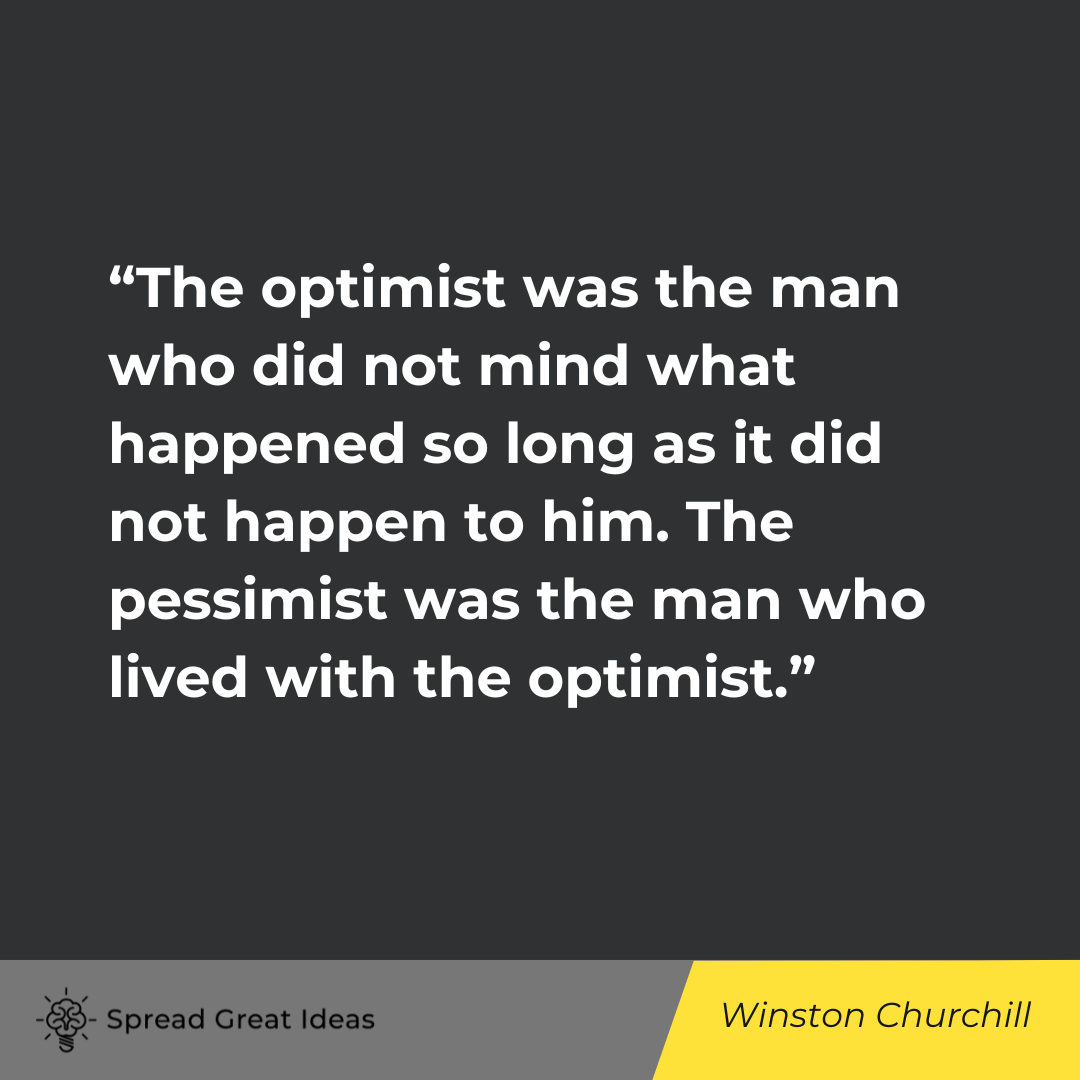
“The only way to have a friend is to be one.”
“Herein lies the tragedy of the age: not that men are poor—all men know something of poverty; not that men are wicked—who is good? Not that men are ignorant—what is truth? Nay, but that men know so little of men.”
Power, Influence, and Morality
“Those who can make you believe absurdities can make you commit atrocities.”
– Voltaire
“You can take away a man’s gods, but only to give him others in return.”
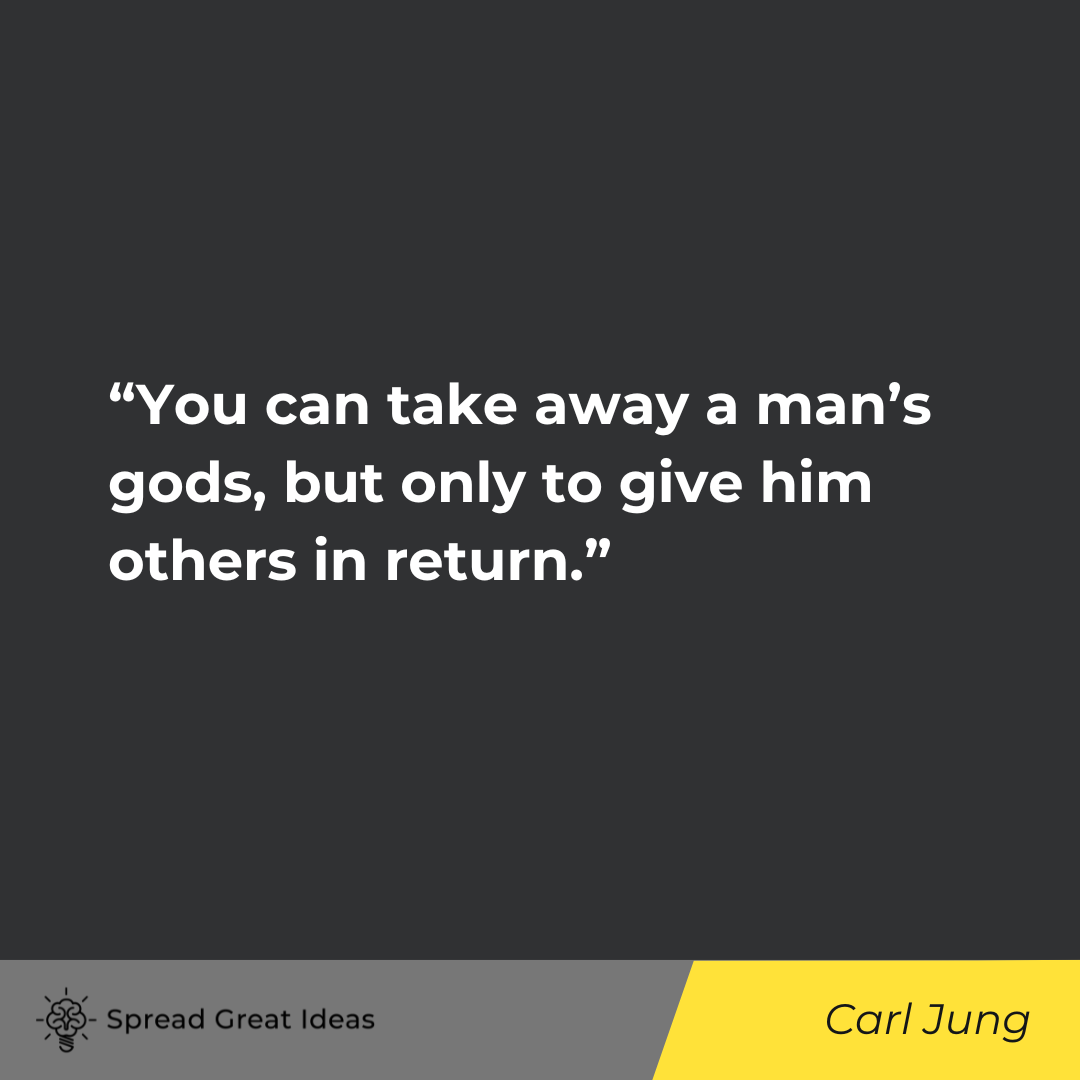
“Never let your sense of morals prevent you from doing what is right.”
“Morality is simply the attitude we adopt towards people whom we personally dislike.”
“There runs a strange law through the length of human history – that men are continually tending to undervalue their environment, to undervalue their happiness, to undervalue themselves. The great sin of mankind, the sin typified by the fall of Adam, is the tendency, not towards pride, but towards this weird and horrible humility.”
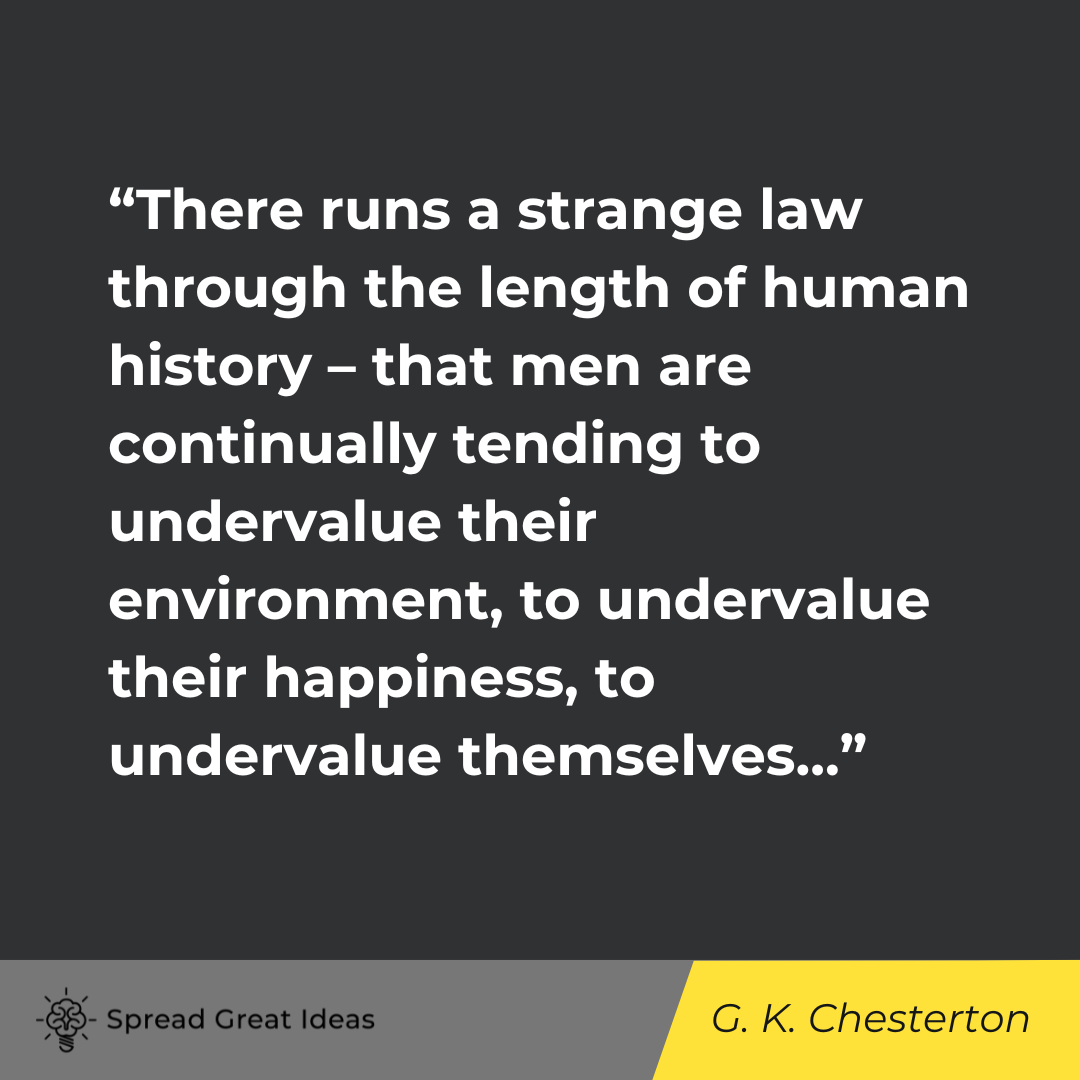
“A man’s true character is revealed by what he does when no one is watching.”
“We mute the realization of malevolence – which is too threatening to bear – by turning offenders into victims themselves and by describing their behavior as the result of forces beyond their control.”
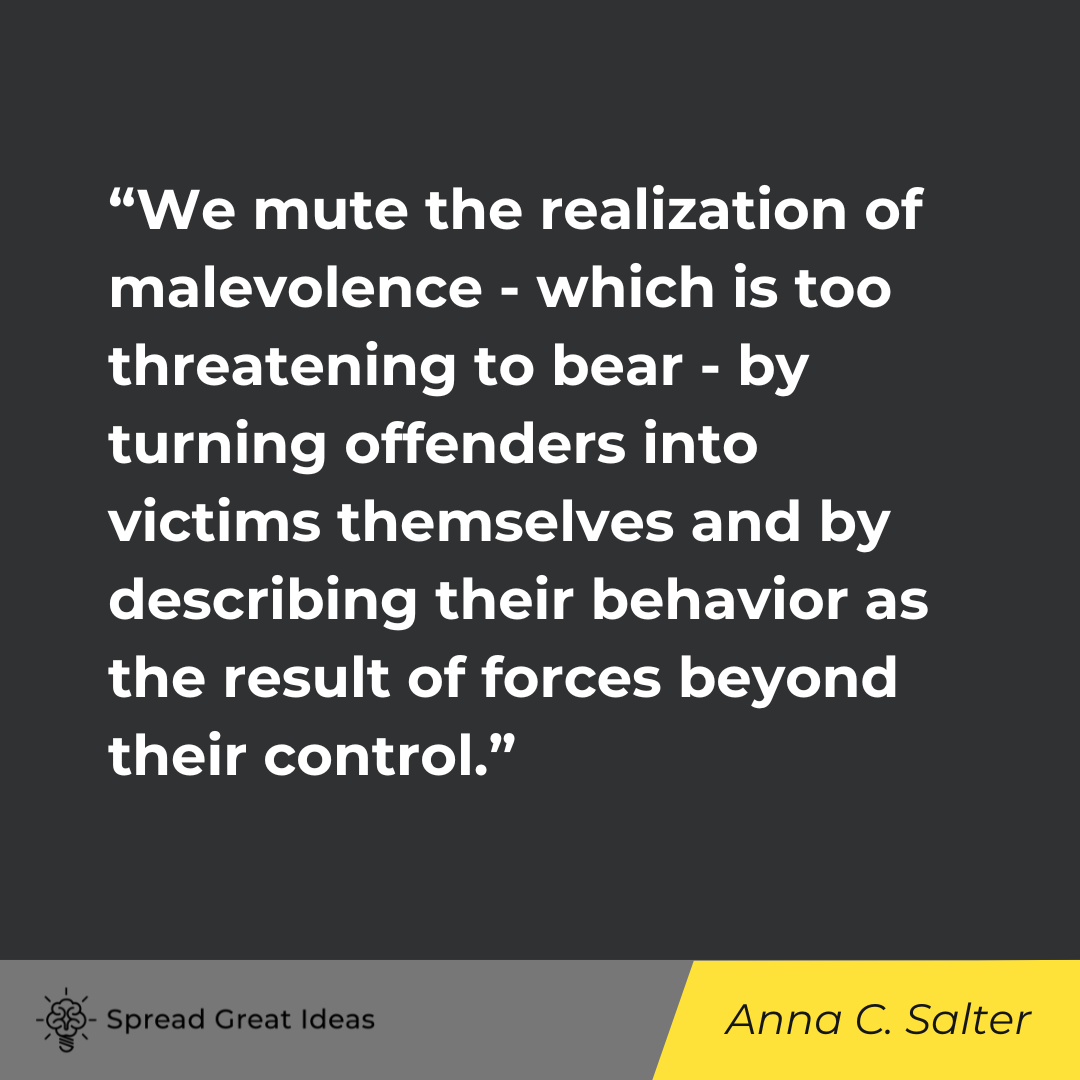
“Certainly paradise, whatever, wherever it be, contains flaws. (Paradisical flaws, if you like.) If it did not, it would be incapable of drawing the hearts of men or angels.”
– Henry Miller, Big Sur and the Oranges of Hieronymus Bosch
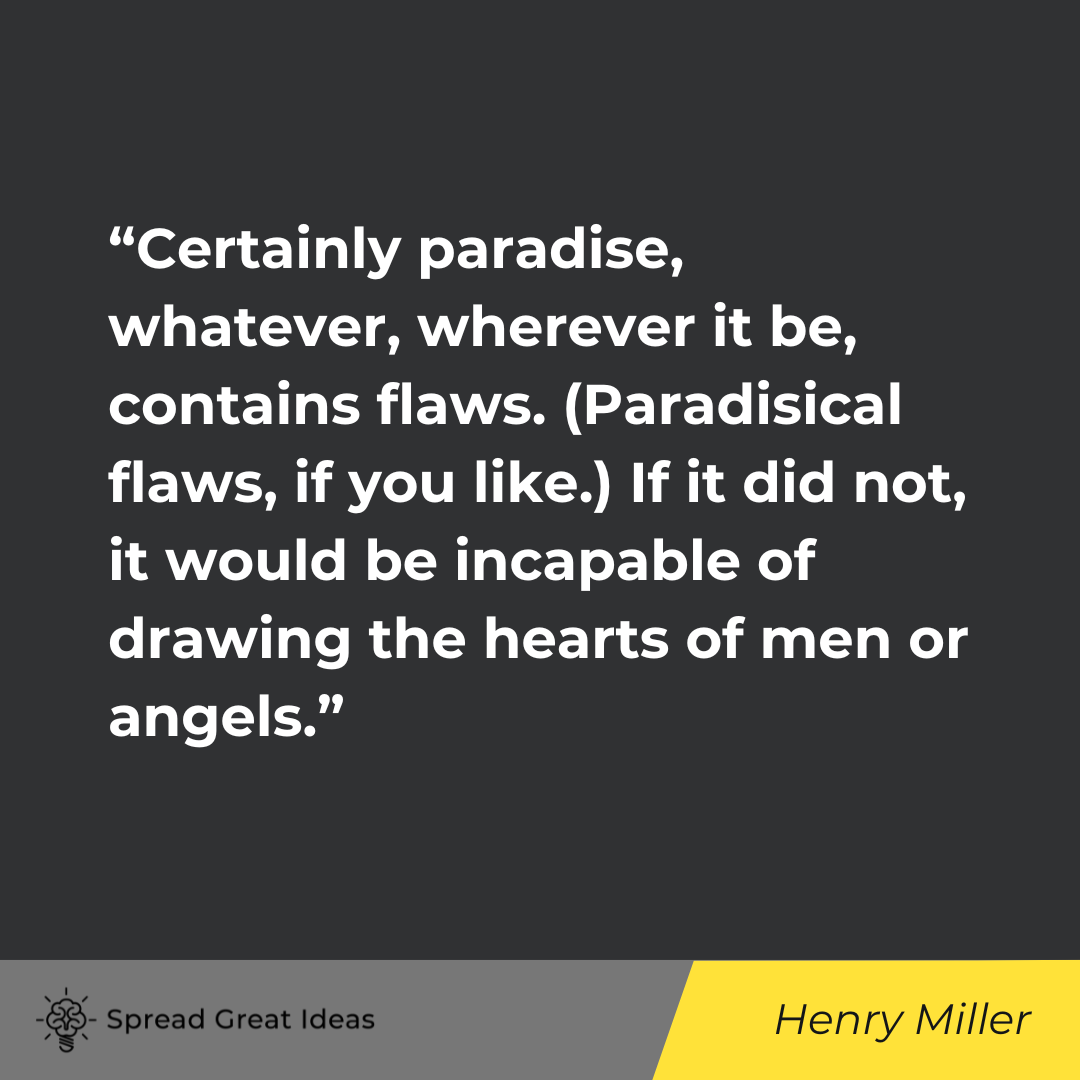
“Eastward and westward storms are breaking, great, ugly whirlwinds of hatred and blood and cruelty. I will not believe them inevitable.”
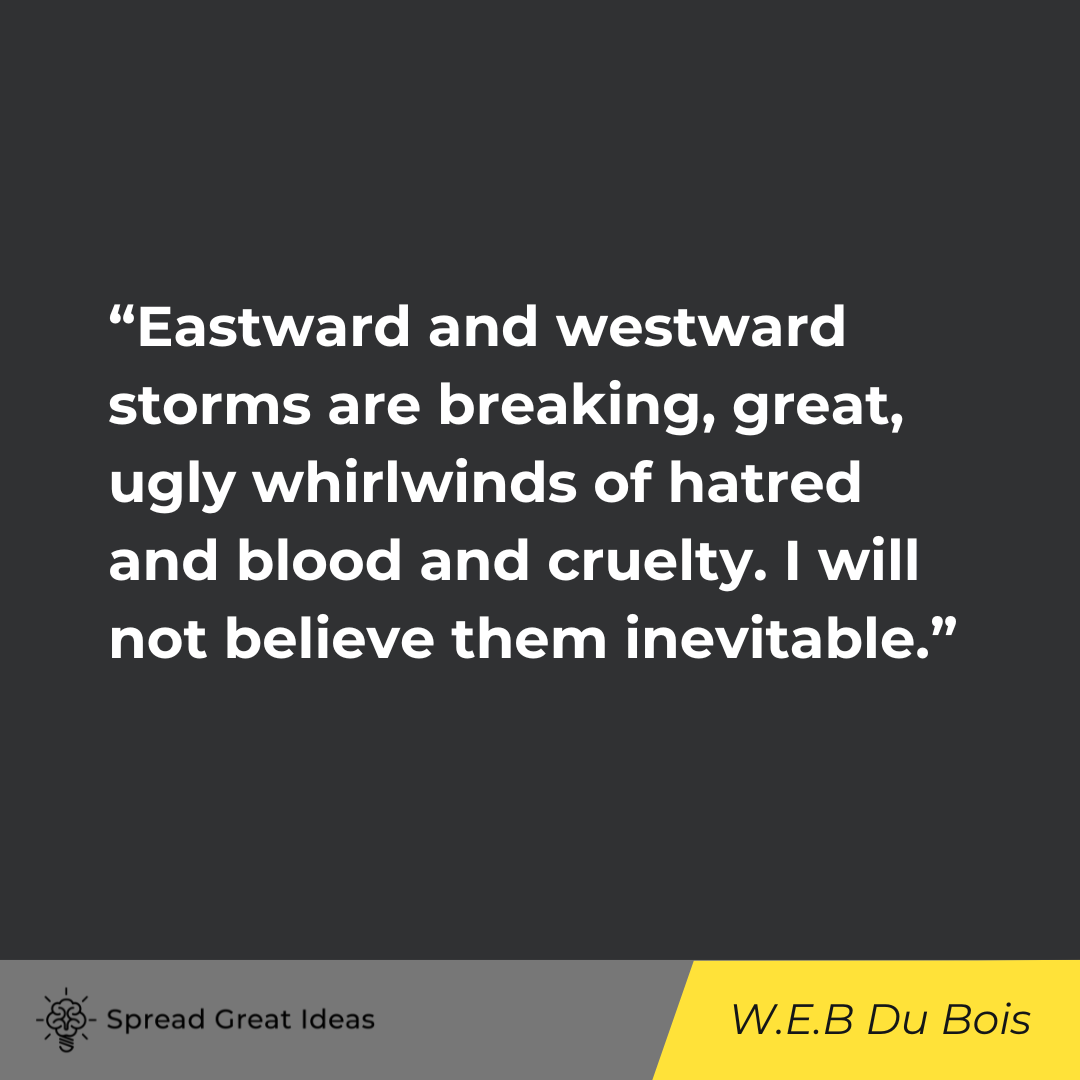
“Life has no meaning a priori…It is up to you to give it a meaning, and value is nothing but the meaning that you choose.”
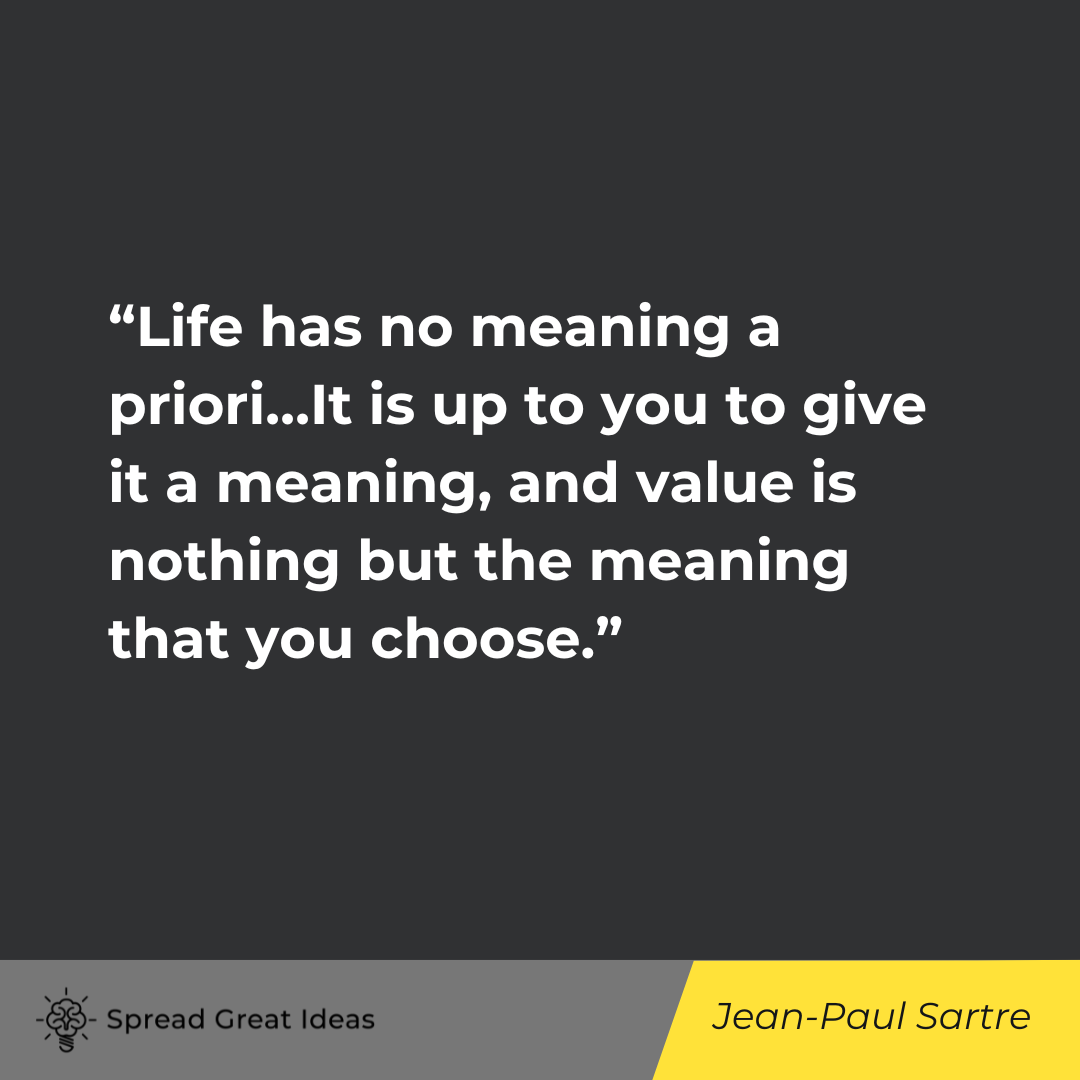
“The sacred rights of mankind are not to be rummaged for among old parchments or musty records. They are written, as with a sunbeam, in the whole volume of human nature, by the hand of the divinity itself, and can never be erased or obscured by mortal power.”
– Alexander Hamilton , The Farmer Refuted, February 23, 1775
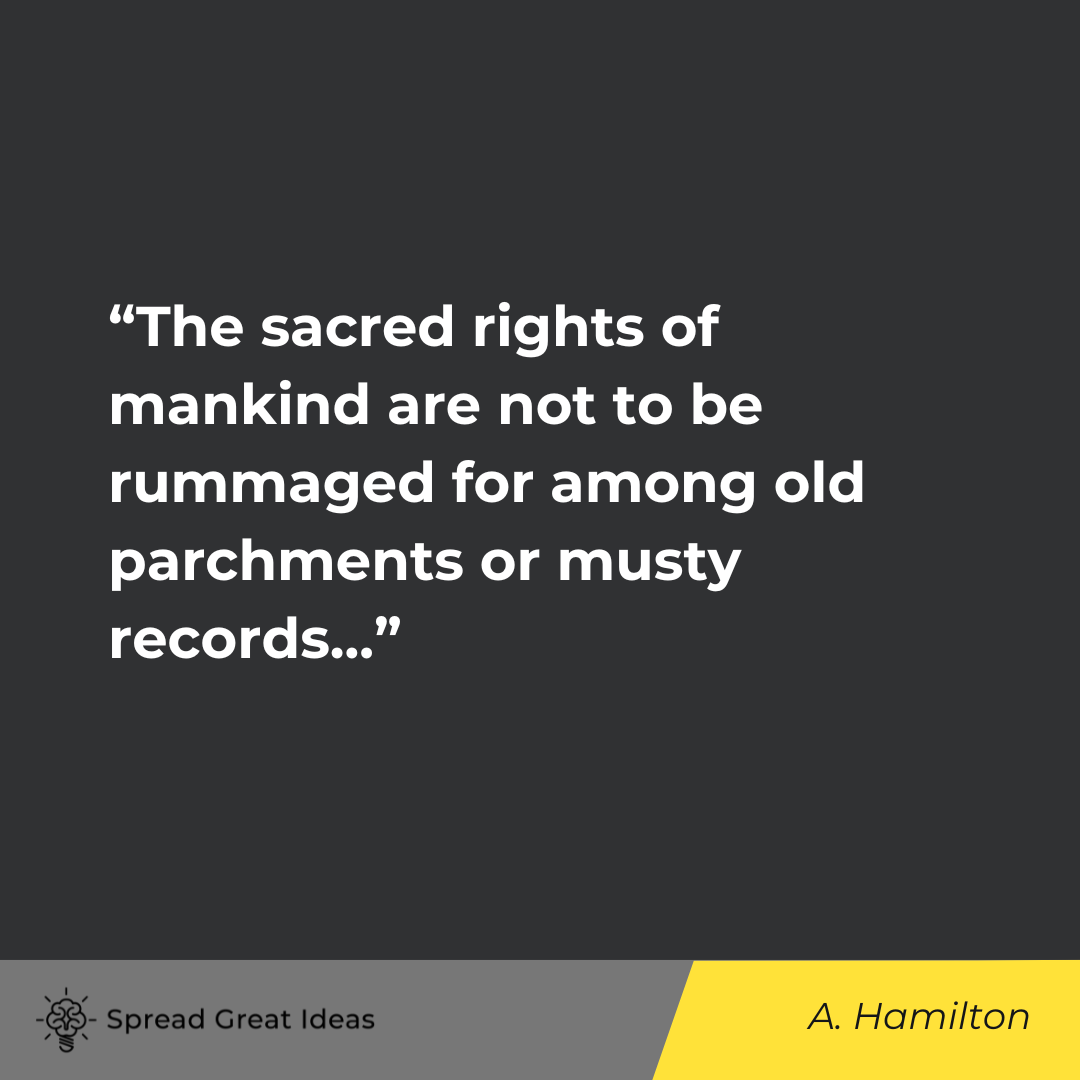
“There is a certain enthusiasm in liberty, that makes human nature rise above itself, in acts of bravery and heroism.”
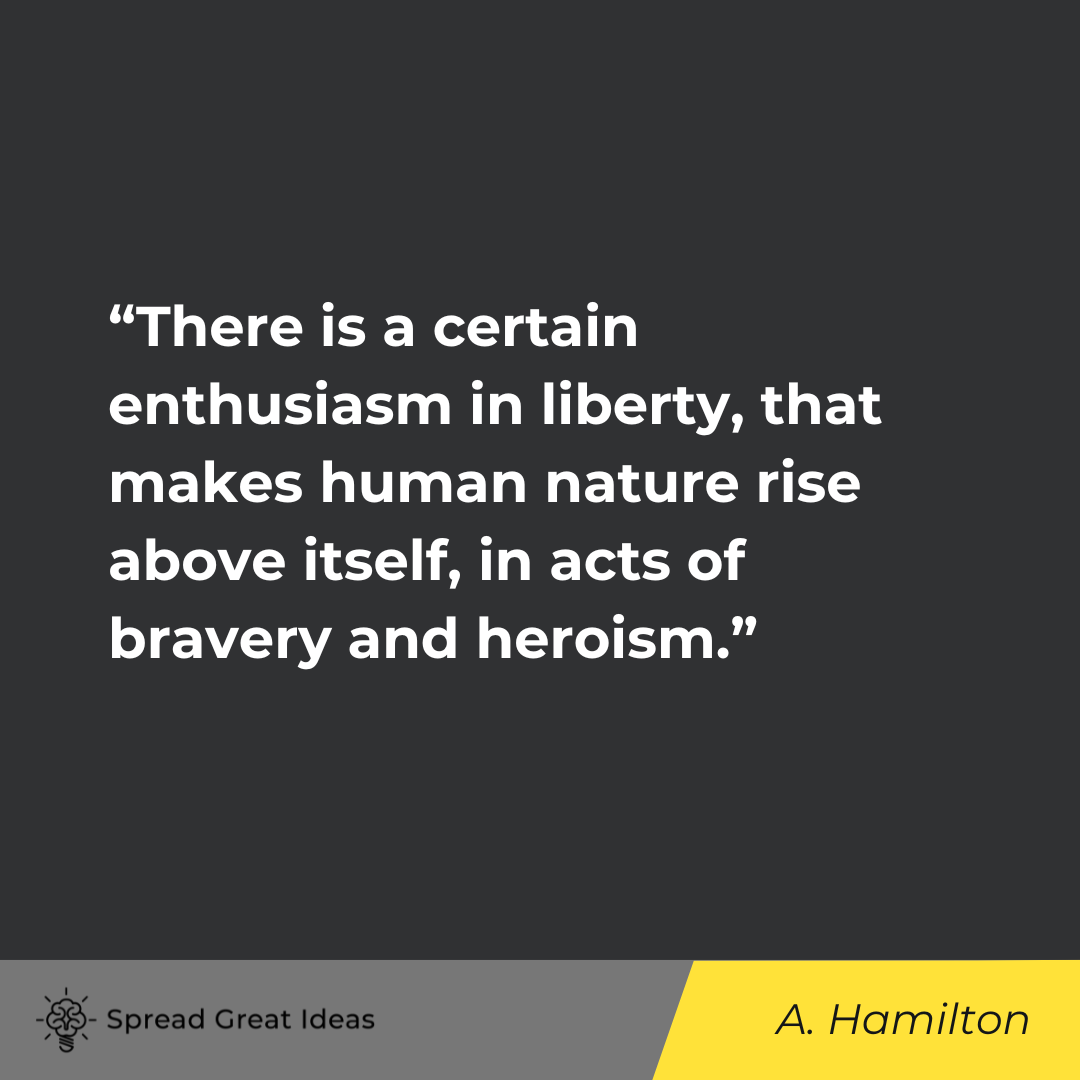
“Being a Humanist means trying to behave decently without expectation of rewards or punishment after you are dead.”
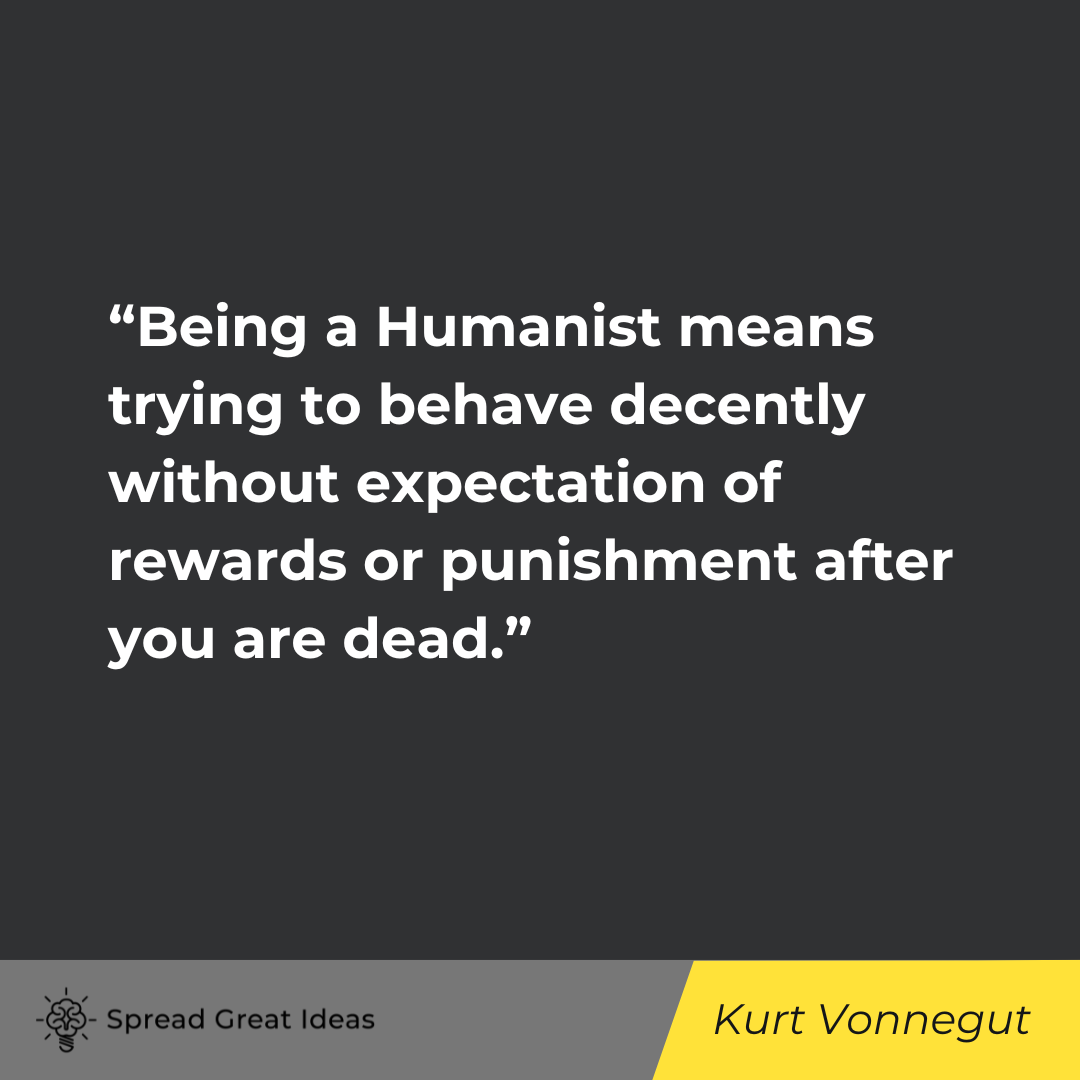
“Remember your humanity, and forget the rest.”
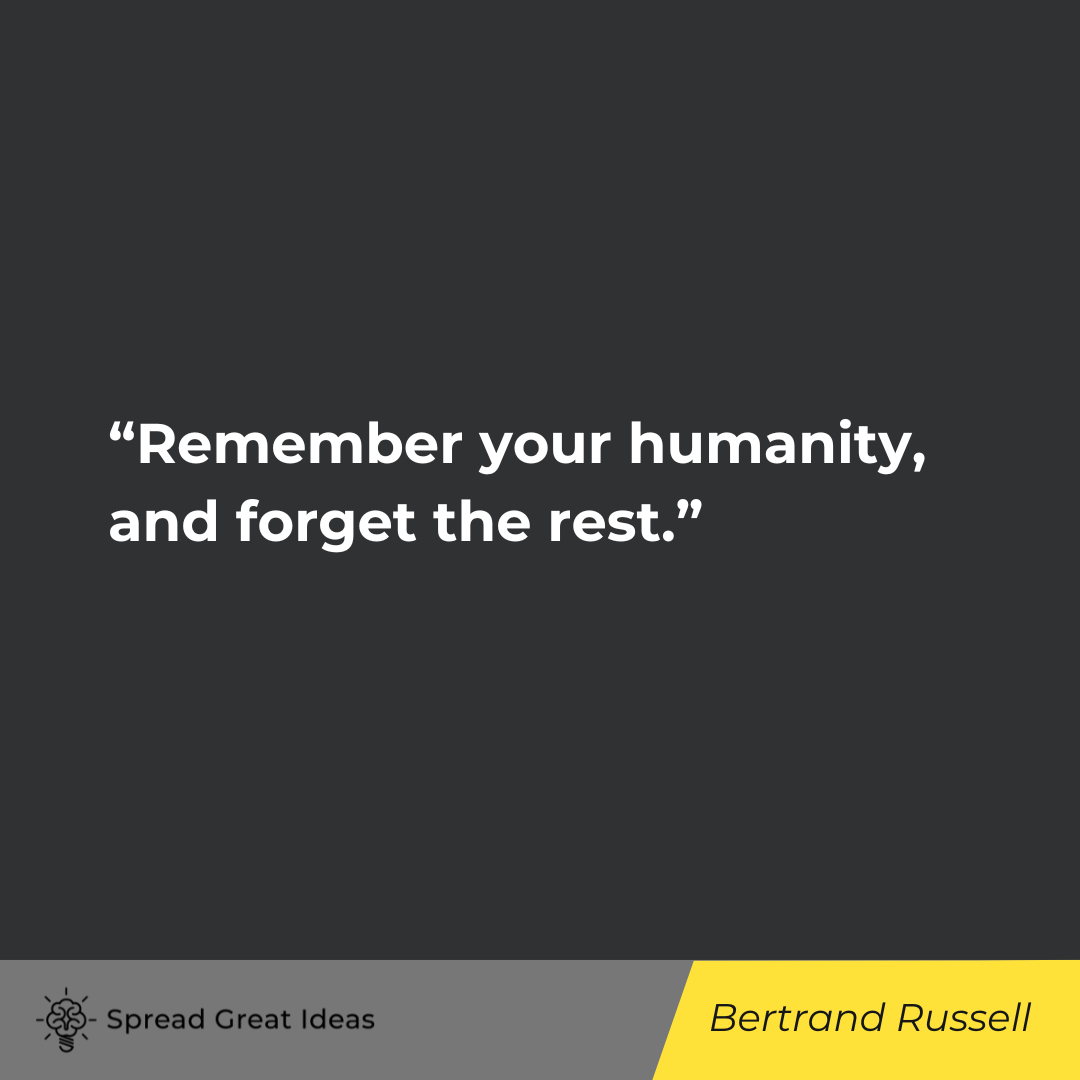
“We are intelligent beings: intelligent beings cannot have been formed by a crude, blind, insensible being: there is certainly some difference between the ideas of Newton and the dung of a mule. Newton’s intelligence, therefore, came from another intelligence.”
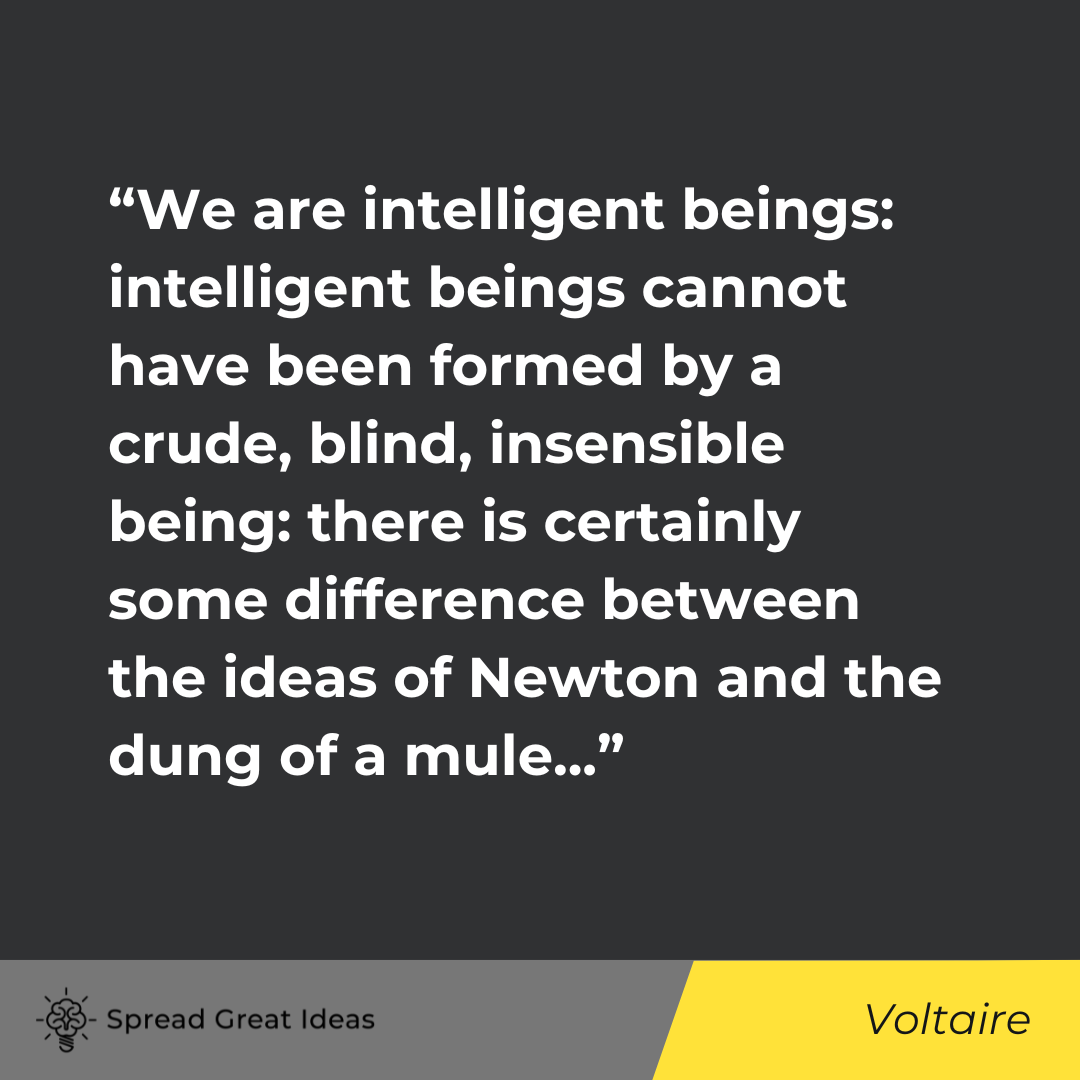
“Humanists recognize that it is only when people feel free to think for themselves, using reason as their guide, that they are best capable of developing values that succeed in satisfying human needs and serving human interests.”
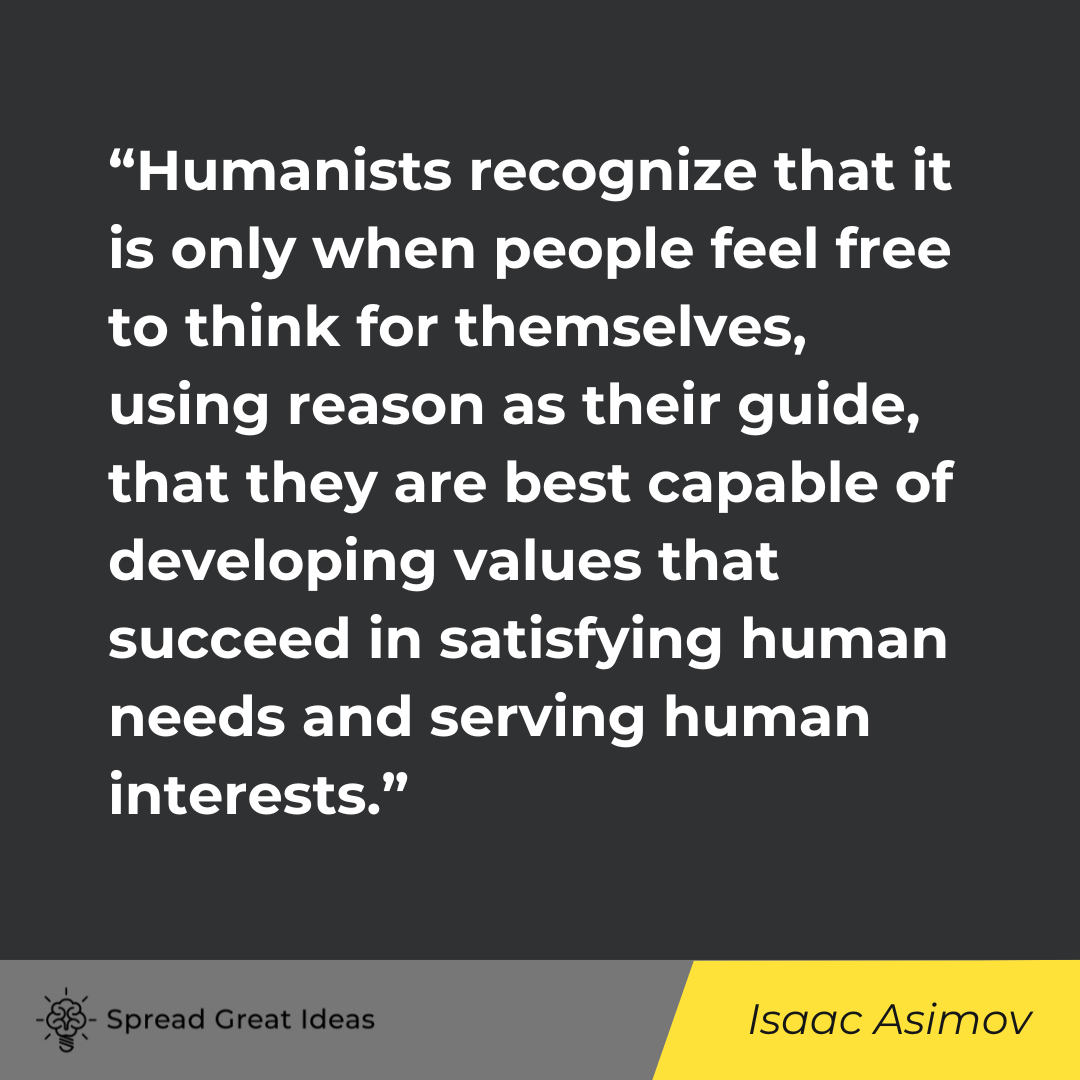
“There is good in everything, if only we look for it.”
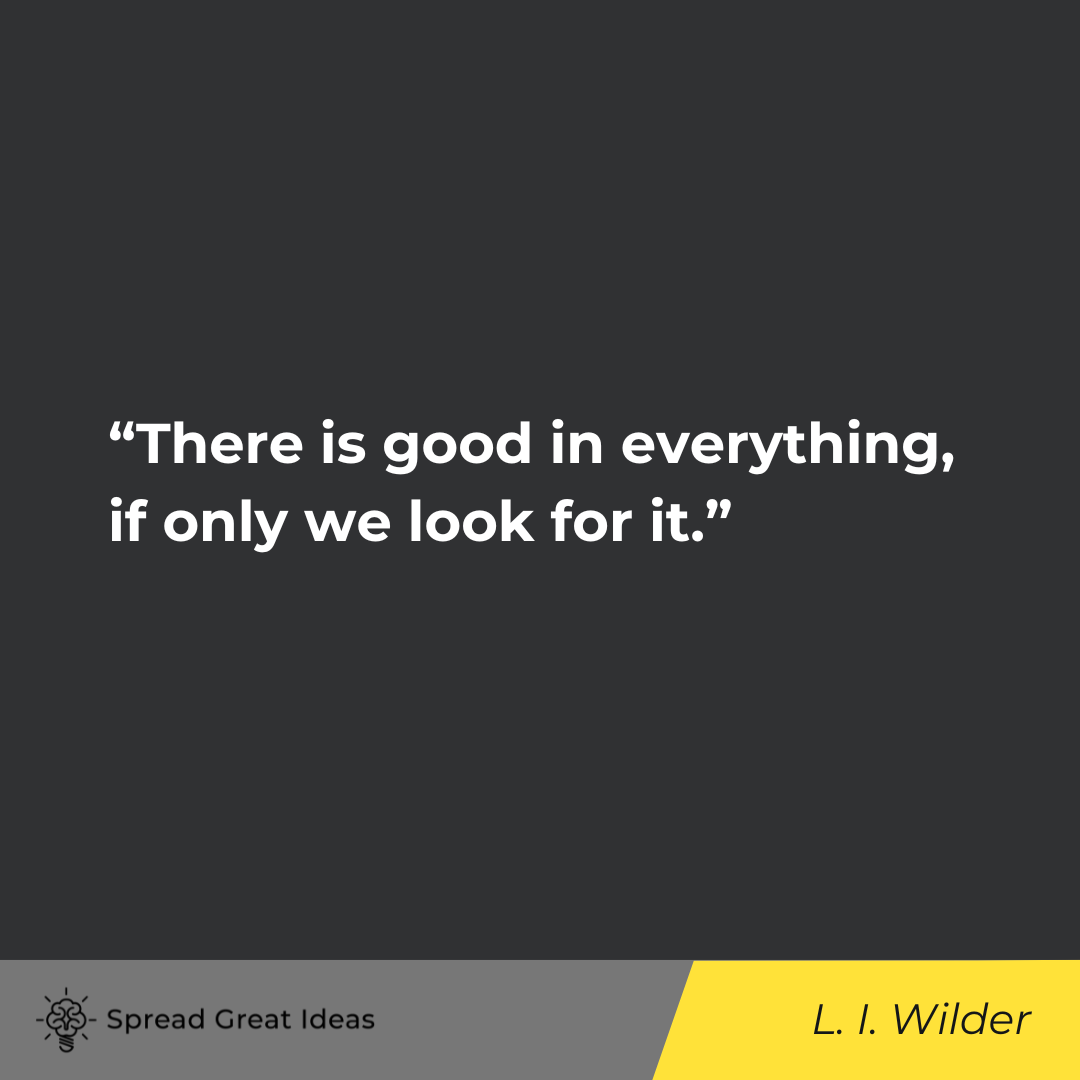
Looking for more inspiration? Dive into our Quotes on Attitude, Presence, and Gratitude to explore how mindset and mindfulness shape our lives.